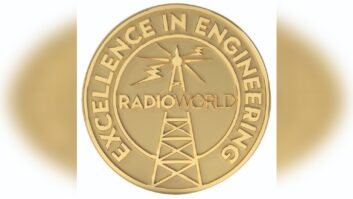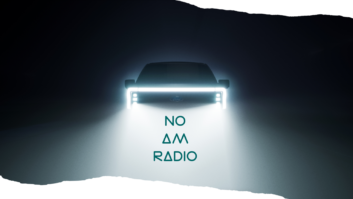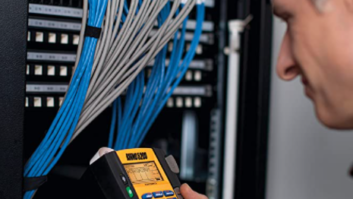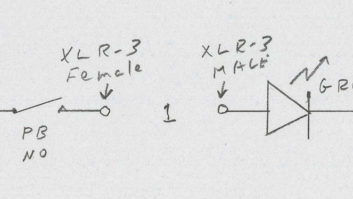The author is chairman of Digital Radio Mondiale.

A last brisk walk through the halls of IBC in Amsterdam this year left me amazed by the LED lights, super thin screens, drone cameras, digital studios of all sorts, solid state transmitters and the mini-boards that can deliver untold digital miracles.
No big breakthrough was announced though, and the IBC Future Zone was uncharacteristically — or metaphorically — a place of darkness. IBC, so forward looking, reminded me of the great fashion shows where the couture is amazing but you are never sure who can afford the great gowns, let alone fit into them.
Radio is definitely part of this new world. While it looks a bit less glamorous on the catwalk, this universal medium is in good health. We are constantly told that radio in our mobile phone is the perfect solution for future-proofing radio. And we can only wish the mobile world would agree with us.
One group of experts I met during the convention explained to me that for their country they seem to have cracked the big challenge of the analog to digital migration by simply introducing a phone app that will apparently deliver all the stations with one touch. This would mean no more hassle with choosing the best standard or standards, rebuilding the infrastructure, revisiting network plans, selling digital radio sets or fitting them into cars and all those boring things. How simple is it though to go from terrestrial broadcast to IP and mobile?
In Africa, according to ITU, 75 percent of inhabitants do not have internet access. In Europe that figure is 21 percent. In the United States two-thirds of households are connected, compared with half of the households in the rest of the world. When it comes to mobile broadband subscriptions, that number worldwide is expected to reach approximately 3.6 billion by the end of this year. Meanwhile, fixed broadband rests below 1 percent in Africa.
These statistics illustrate the already well-documented discrepancies in connectivity between the developed and developing world. There is, though, another aspect as well — the varying costs of all this connectivity. Fixed band seems to be about three times more expensive than mobile-broadband services. The paradox is also that where connectivity is scarcest (the poorest countries), the cost is the highest.
But there is a much more important aspect than just the internet, broadband or mobile or fixed availability. Once we leave terrestrial radio, often in the shape of public broadcasting, we leave universality of access and free, or almost free, information. Then begins the diet of monthly portions of bandwidth through which to download radio programs and which can sometimes be mixed and matched if one has access to terrestrial radio and IP solutions on his or her mobile or laptop. And this is just from the point of view of the listener, increasingly being treated as a “consumer” and dispenser of cash.
For broadcasters, the new world also implies large swathes of broadband and diverse systems of delivering the same content many times, to each consumer individually, on more platforms and for different operations systems. So should radio remain in its splendid analog isolation? That would mean a slow death for radio and neglects the new digital reality into which it fits very well.
Many governments (if not all) have a covenant with their people, requiring them to deliver, based on human rights, information.
Digital radio must therefore be universally available, deliver information and, if possible, education and entertainment, while terrestrial radio has to be maintained and nourished.
Digital is radio’s future and needs to be supported in every way (financially, too) by governments, in the same way in which connectivity is pursued. Digital radio has to be available to all citizens and not just serve the elite, mainly living in large cities.
A standard like DRM, for example — though this is true of other standards too — can link to the whole digital universe and bring it terrestrially and digitally to everyone, even to those without mobile or fixed broadband, internet in their household or even electricity. The goal of making digital radio universally and globally available has to be put much higher on the ICT agenda.












